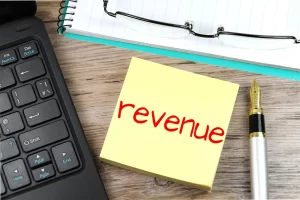What is Hotel Revenue Management?
Revenue management for the hospitality industry is the process of understanding, anticipating, and influencing consumer behavior in order to maximize revenue or profile from a fixed, perishable resource (such as airline seats or hotel rooms).
The concept of revenue management is based on the basic economic principle of demand and sales in hotels.
Hoteliers adopt various means to evaluate the performance of their hotels. Most hoteliers calculate the average daily rate to measure the performance of their hotels in terms of revenue generation.
Hoteliers have realized that along with the volume of business, they should also concentrate on revenue generation in each sale.
The challenge here is to sell the right resources to the right customer at the right time for the right price. This process can result in price discrimination, where a firm charges different prices from customers consuming otherwise identical services.
For example- the tickets purchased much earlier than the date of travel are less than bookings made a little in advance. This way of maximizing revenue generation is termed Revenue management.
Soon, this concept gained popularity in various sectors selling highly perishable products and services like railways and hospitality.
Basics of Hotel Revenue Management
Revenue is the ratio of actual profit generated to potential revenue. The airline industry pioneered the concept of revenue management. These techniques are applicable to all highly perishable products and services.
Revenue management is a pricing and hotel revenue optimization strategy based on the principle of demand and supply. When demand exceeds supply, the prices are raised, and when supply exceeds demand, the prices are lowered to attract more business.
In the hospitality industry, the revenue management tools are selective overbooking of rooms, differential pricing, and duration restriction. Forecasting provides information on projected revenue generation for a specific duration.
Importance of Revenue Management in Hotel Industry
Hospitality revenue management is useful in the following ways:
Revenue management helps the hotel revenue managers to project the future volume of business and the revenue that would be generated by the hotel.
The volume of reservations will help the front office manager and the management of the hotel to plan the following:
1. Staff required in each department for the smooth functioning of the hotel.
2. Minimum inventory of items required by each department to carry out their tasks efficiently.
3. Allocation of resources to serve the guests in the best possible way.
4. Maintenance and replacement requirements of the furniture, fixtures, and ultimately the property, as the wear and tear of these, depends on the number of people using it.
5. Special arrangements to be made for the arrival of groups, commercially important persons, and VIPs.
6. The reservation forecast will provide the necessary data to the reservation manager to practice revenue management.
7. The reservation manager will be able to take selective overbooking, based on the reservation forecast.
8. The forecast data provides information about the lean days when the occupancy will be lower, and the sales department takes the necessary actions to attract the business for that duration.
9. The forecast data will also reveal the sold-out dates, which will ensure that the reservation agent does not accept reservations for those days.
10. By studying group booking data, hotels can anticipate group behavior and accordingly make provisions in group reservations. The group’s booking pace indicates the rate at which group business is being booked as per the historical trends.
11. Anticipating group business helps watch out for repetitive group patterns and accordingly forecast the pressure on the market, and hence adjust selling strategies. This is very important in determining whether to accept an additional group and at what room rate to book the new group. This might cause profitability problems and a bad reputation.
12. The front office management should monitor the booking pace and lead time of individual guests to understand how current reservations compare with historical and anticipated rates.
13. All local food and beverage functions should be viewed in light of the potential for booking groups that need a meeting space, food and beverage service, and guest rooms.
14. Even when a hotel is not in the immediate vicinity of a convention, individual guests and small groups, who have been displaced by the convention, may be referred to the hotel and this may have a tremendous impact on the hotel’s revenue.
15. During special events, hotels might decide to benefit from high demand by restricting room rate discounts or requiring a minimum length of stay.
Strategies for Hotel Revenue Management
The revenue management strategies in the hotel industry are varied according to the high-demandable and low-demandable time periods.
1. In High-Demandable Periods
In high demandable periods, the management would use the following tactics:
- Apply deposits and guarantees to the last night of stay.
- Select the dates that are to be closed to arrivals.
- Consider a rate to increase for packages instead of giving more discounts.
- Raise the rates as consistent with competitors to generate optimum revenue.
- Guarantee and cancellation policies to avoid the last moment no-shows or cancellations.
- Reduce or eliminate 6 p.m. holds to avoid last-moment no-shows or cancellations.
- Reduce the group room allocations as groups get very low rates.
- Apply a minimum length of stay restrictions carefully.
- Close or restrict discounts to generate more revenue.
2. In Low-Demandable Periods
During the low demandable periods of time, as indicated by the forecasts, the management would use the following tactics:
- Sell value and benefits like spa treatments.
- Offer packages and special offers.
- Encourage upgrades.
- Offer stay-sensitive price incentives.
- Remove stay restrictions.
- Establish relationships with competitors.
- Lower rates to attract more guests and generate more revenue for the hotel.
Read next:




